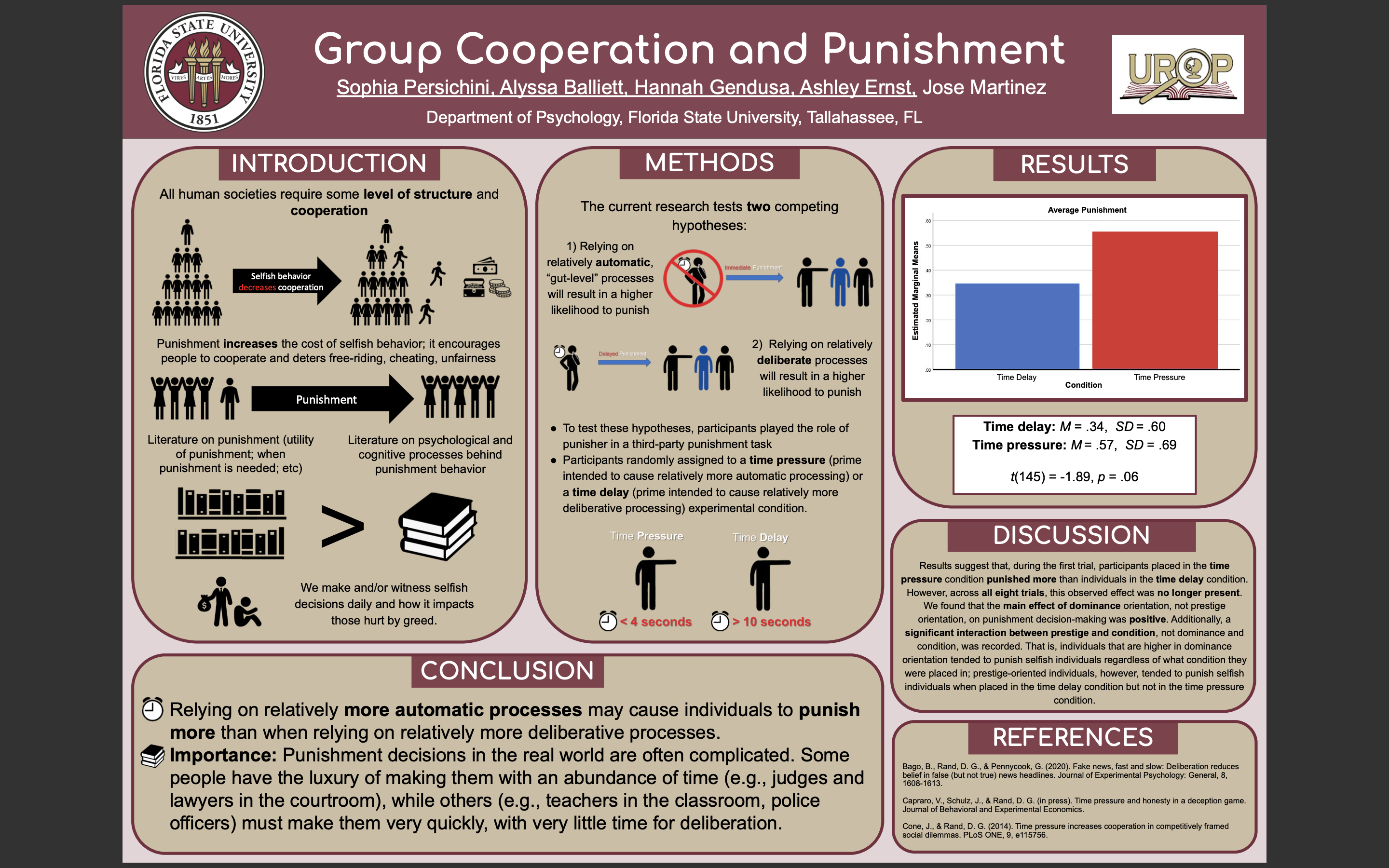Research Symposium
23rd annual Undergraduate Research Symposium, April 6, 2023
Ashley Ernst Poster Session 1: 11:00 am - 12:00 pm/ Poster #52

BIO
I am a sophomore majoring in Political Science with a minor in Criminology from Cincinnati, Ohio. My research interests include human behavior, decision-making of high profile actors, and international political trends. After undergrad, I hope to go to law school and become an international human rights attorney.
Group Cooperation and Punishment
Authors: Ashley Ernst, Jose MartinezStudent Major: Political Science
Mentor: Jose Martinez
Mentor's Department: Department of Psychology Mentor's College: College of Arts and Sciences Co-Presenters: Sophia Persichini, Alyssa Balliett, and Hannah Gendusa
Abstract
Punishment is useful for increasing group cooperation and reducing selfish behavior. However, many questions remain regarding the psychological and cognitive processes that drive punishing behavior. The current research tests two competing hypotheses regarding the processes behind punishment: (1) punishment relies on relatively automatic processes (2) punishment relies on relatively deliberate processes. To test these hypotheses, participants played the role of “punisher” and were placed in either a time pressure (prime intended to cause relatively automatic processing) or a time delay (prime intended to cause relatively deliberative processing) experimental condition. Results suggest that, during the first trial, participants in the time pressure condition punished more than individuals in the time delay condition. However, across all eight trials, this observed effect was no longer present. Secondary analyses examined the potentially moderating roles of individual differences in dominance and prestige. We found that the main effect of dominance orientation, not prestige orientation, on punishment decision-making was positive. Additionally, a significant interaction between prestige and condition, not dominance and condition, was recorded. These findings suggest that, when individuals are provided time to deliberate, the decision to punish may not be chosen, allowing the uncooperative behavior exhibited by a selfish individual to go unaddressed. While dominance-orientated individuals appear to punish a selfish individual regardless of the time allotted, prestige-orientated individuals may only make such a decision after deliberation. While punishment can be a costly behavior, it is a necessary decision as there may be circumstances that disincentivize individuals from punishment decision-making that must be addressed.
Keywords: Punishment, decision-making, cooperation


